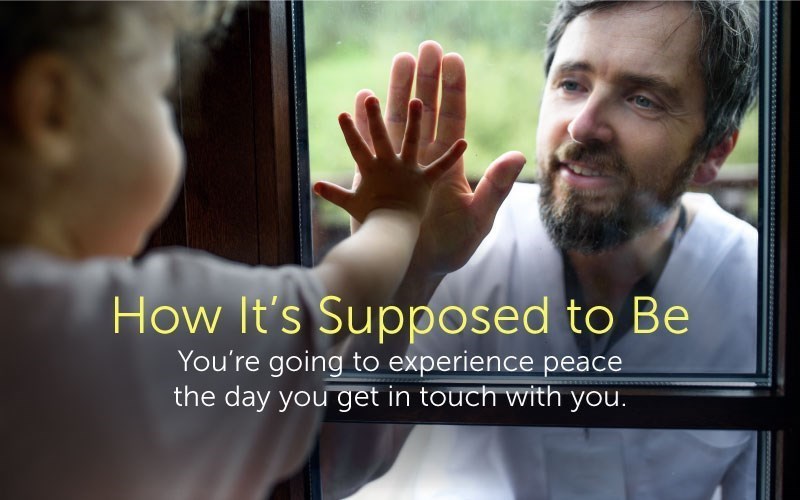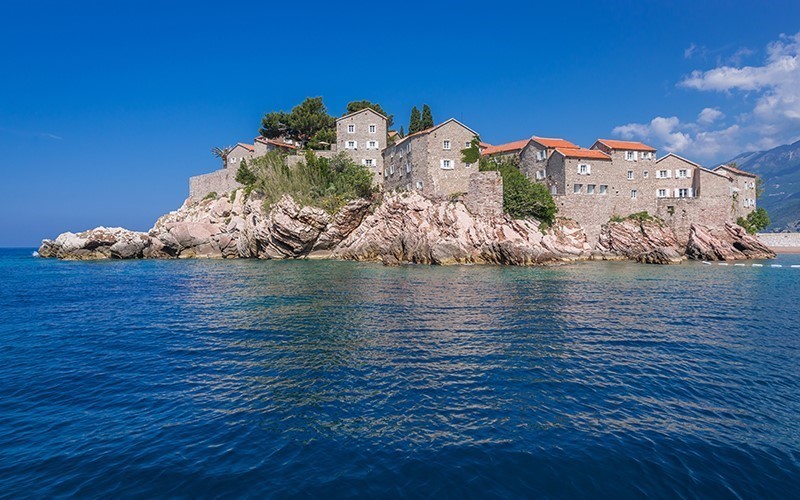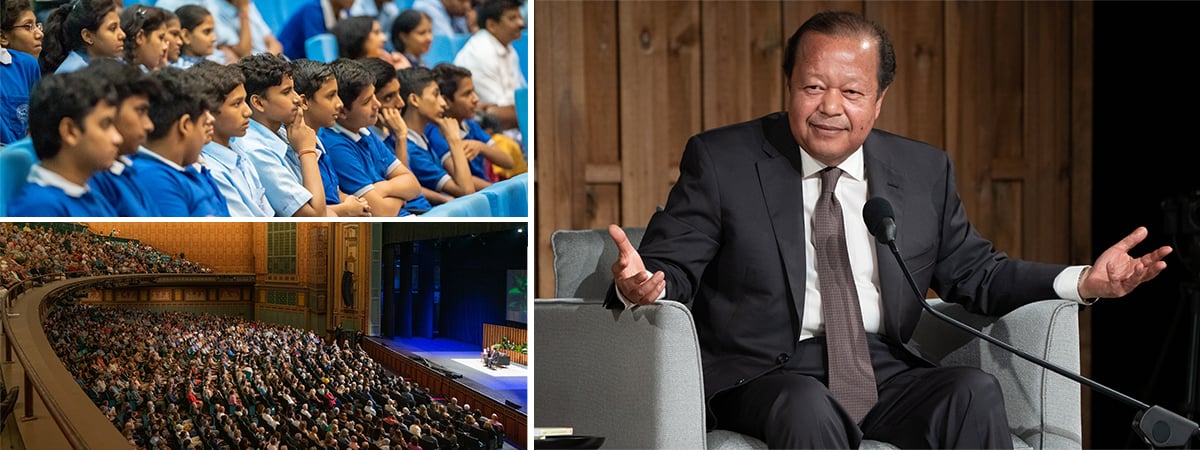Topics
 00:07:27
Quieting the Noise
Video
Duration : 00:07:27
You actually get to create your own internal playlist. What do you want to hear?
00:07:27
Quieting the Noise
Video
Duration : 00:07:27
You actually get to create your own internal playlist. What do you want to hear?
MC and host: [Sara Powell]
I just want to get straight stuck in if I may. Something that we’ve had a couple of questions about, and something that really spoke to me from what you said, was “the noise”—that chatter that is constantly there. And I wondered, “What’s the best strategy for coping with it? How do we quieten it down, the noise?”
Prem Rawat:
Well, these are the questions you have sent—I mean, over 200 questions came in—and some of you who have, probably, cell phones that are from different countries, probably are still coming in through, you know, because they go round robin, yeah....
MC:
Yeah, you’ll be getting them till Wednesday, yeah!
Prem Rawat:
And, yeah, exactly. So, the question is, where does this noise come from? I mean, who is the perpetuator of this noise; who is the generator of this noise, and where is the stage that it ultimately plays out on?
So, the stage where it ultimately plays out on is you! But where does it come from? Well, it is something that started a long, long time ago, right from your parents.
Because, whose voices are there? They are included too, and the friends are included, and the boss, and the friends, and the friends of the friends, and the, everybody who has two-cents-worth of advice, and it just gets recorded,
But then the question becomes, “Why did it get recorded? Who had the record button pushed in?” Right? And we allow this to happen. We don’t think we have a choice. Because we don’t live our lives by that tactile feel.
I was watching a show where they were showing this person who was challenged with the sight. And as he moved around the room, he had to feel everything—and where it was and how it was—and there were no assumptions.
And we, the ones who have eyes, are most likely to have that chair pulled out from underneath us or even miss the chair. But not this man, because he knows he has to have that feel. Every step that he takes in his life is taken deliberately. Not just, “Uh, let me see what’s over there.” Do we live our lives like that?
You know, and maybe the noise is a consequence of living a very unconscious life. That if there was a conscious life, then you would say, “Okay! Since I have a tape recorder....” Don’t fault the tape recorder, by the way. That’s really good that you have a tape recorder. It’s the content of the tape recorder that’s bad.
“So, can I put in nice stuff? If I’m going to have noise, let me have some really lovely noise, something that inspires me, something that gives me courage....” Because we all need courage. That’s why courage is there—hmm—because we need it!
Because in life, the mountains that you have to sometimes cross, that we have created for ourselves, are no ordinary hills. Mind you, they are indeed mountains of extraordinary proportions, and it requires nothing shy of courage to even take on the challenge to do so.
So, you know, this is, in a way, what I do. Because, you look at the Peace Education Program—and when it goes to the prisons, their voice, their tape recorder is going, “I am here, and it’s the fault of that person, and that person, and that person, and that person.”
And they go through the Peace Education Program, and they start to realize, “Hey, look at yourself.” And when they do, then they realize that they are standing at a threshold where they can change.
And it is no mistake or an accident that people who go through the Peace Education Program—at least, the inmates who go through the Peace Education Program—have the lowest rate of return back into the prisons.
So, we’re not inmates, are we? I mean, we’re not in a prison system, are we? The prison system you are currently in.... The other prison system, they’ll get out after two years, three years, four years, five years. The prison system you are in, you don’t get to get out till you die—sorry. Huh! You’re in for life.
Folks, it’s really time to start creating your heaven, because there are no options here. The wall is there—and there are no options! And getting rid of that noise and putting the nice noise on is up to you. It truly is—because you’re the one who is doing it: who’s buying into this noise and keeps: “Ah, push play again, please.” And, you know, and has it on “repeat,” so it just keeps repeating and repeating and repeating and repeating.
Life has the possibility of creating your own playlist—your playlist that you like. Do you want to accept that challenge? You know, the issue isn’t just the noise. We can replace it with something beautiful, something wonderful, something you like. Not what I like—you like! Because I want to create my playlist of something I like. You create your playlist, something you like.
- Prem Rawat
 00:05:16
Who Are We?
Video
Duration : 00:05:16
Why know yourself? Within you springs the spring of hope, of joy, of knowledge, ...
00:05:16
Who Are We?
Video
Duration : 00:05:16
Why know yourself? Within you springs the spring of hope, of joy, of knowledge, ...
Who am I? Seventy percent water and I can talk? Seventy percent water and I can actually see things? Seventy percent water and I can think?
When was the last time water thinks? Does that come across the news: “We have thinking water.” And we have thinking water right here! So, who am I? This tourist that has to go one day? Who? What?
What is this life all about? Why do I want to be happy? I mean, well, what is this crazy thing: “I mean, well, I just want to be happy.” Even when I’m sad, I want to be happy. It’s not like when I’m happy, I want to be sad. Then I’m crazy. Then I need to see a psychiatrist.
But why is it, naturally, that when I am happy, I want to remain happy and when I am sad, I want to be happy? Clue? Sherlock Holmes, clue? What is the clue? That I am biased.
“Oh, but, and no human being is born with an instruction manual.” Maybe we don’t need it—because the instruction manual is obvious!
Nobody goes to the church, nobody goes to the temple, nobody goes to the mosque to pray to God, “Too much happiness; please take it away; I can’t stand it.” Too much sadness? “Oh, please, too much sadness; take it away.” Too much happiness? Not a problem. Too much joy, not a problem. Too much clarity, not a problem.
So if this is who you are, what have you done about it? If you are hungry, you need to eat! Or do you need a scientific discourse?
Socrates said, “Know thyself.” Why? Why? I mean, why know yourself? Isn’t your name enough—on a card? Isn’t it? Isn’t it?
But is that who you are? Somebody else had that name, and somebody else will have that name.
“Within you,”—the “Paras” is this mythical stone in India, that when you take this stone and touch it to metal, it’ll turn the metal into gold, the alchemist’s metal, the alchemist’s stone, the famous stone—“that that’s within you too, and the pearls are within you too, and the one who understands the value of these is also within you.” The appraiser is also within you.
“Within you resonates the silence”—the silence. “And within you springs the spring of hope, of joy, of knowledge, of wisdom.”
- Prem Rawat
 00:05:50
How It's Supposed to Be
Video
Duration : 00:05:50
"You’re going to experience peace the day you get in touch with you." —Prem Rawa...
00:05:50
How It's Supposed to Be
Video
Duration : 00:05:50
"You’re going to experience peace the day you get in touch with you." —Prem Rawa...
Prem Rawat: There’s a saying about tradition. (I love it. Really like this saying.) It goes like this: “Tradition, what is tradition? Tradition is peer pressure from the dead.” They’re dead; they’re gone! But the pressure is still there.
And there they are, “It should be this way; it should be this way; it should be this way,” and this is the tape that plays in your head, and this is how you make your selections.
Whatever happens. So much of it is not being driven by our selection as we would like to think it is. It is not being done that way; it is the tape that plays. I call it “noise.” What do you call it?
It’s noise. “This has to be this way; this has to be this way; this has to be this way; this has to be this way; this.... You have to sit on the right; you have to sit on the left; you have to do this and you have to do that and you....” Noise, noise, noise, noise, noise, noise, and this whole life becomes full of noise.
And in the midst of this noise, we want sanity?! In the midst of this noise, we want clarity?! In the midst of this noise, we want to be happy?! You really are asking a lot! You’re really asking a lot. Because that’s not going to happen.
The way we have structured our life, we have made it so difficult, so incredibly difficult, that the path to peace indeed has become incredibly, incredibly difficult.
When the desire for peace is simple, the path going back home.... That’s the only way. That’s the only way you’re going to experience peace in your life, is when you go back home—home here, in you. Not here! But here, in you. That’s the only way you’re going to experience peace.
You’re only going to experience peace the day you get in touch with you! And that process of getting in touch with you is incredibly difficult because we have wandered so far away from our selves.
Now—here is the problem. Here is the real problem. Now, we don’t recognize home. Now, we don’t recognize home. And when you don’t recognize home, you could be standing in front of it, and you will go, “What, that’s my home?”
You already have a preconceived idea of what your home looks like. Absolutely. And when your concepts don’t meet up with it, you go, “That’s my home? That’s not the home I want.”
But “home” isn’t about that; home is home. Home is that place you come to—and you close that door. And you are in your world. That’s what home is. Everything, everything is familiar.
 00:04:35
Peace and Prosperity
Audio
Duration : 00:04:35
Enjoy this 4:42-minute audio clip in which Prem presents a unique perspective on...
00:04:35
Peace and Prosperity
Audio
Duration : 00:04:35
Enjoy this 4:42-minute audio clip in which Prem presents a unique perspective on...
In our lives, we want to hear about how we can be prosperous, but really it takes a little bit of thinking. But there is no way that you can be prosperous without peace.
How many of you take baths? Thank you. How many of you like to go swimming in a swimming pool? So, it’s nice. It’s nice to be in that water. It’s nice. So, it’s nice to soak. It’s nice to swim in that water. Flex the muscles and feel that warmth or the coolness of the water. It’s refreshing, isn’t it? And how many of you would absolutely love to be in this beautiful Caribbean place – crystal clear water, cool wind, nice perfect temperature water, step into it and just float? Because of the salinity and feel the rejuvenation of the salt - and the water – and the wind. How many of you would do that?
Okay. So let’s take that one step further. So now I have established that you do like the ocean. If I were to take you and put you in the middle of the Pacific Ocean, thousands of miles from any land, would you like that?
So wait a minute, here we go. We do like the water, but there has to be something that has to be available as the comfort factor. And that comfort factor is land.
Well! In my analogy, peace is that land. Prosperity is the water. It feels good; it’s warm; it’s cool; it’s this, it’s that. The waves, the frolicking, the this, the that. I mean all of that good stuff. That’s all fine. So far it is in the context of something because you are not water based. Even though seventy percent of you is water, but you are land based. You need to breathe the air. You need to be on the stability of earth.
Terra firma under your feet when all is said and done. And in the same way, peace, joy, tranquility, serenity, clarity, understandings are your “terra firma.” When you are with these, all is truly well. And you may venture away from this, only if you are able to come back to it. Because this has to be readily available at all times.
-Prem Rawat
 00:05:44
Searching for Peace
Audio
Duration : 00:05:44
Ignorance comes from the word ignore.
00:05:44
Searching for Peace
Audio
Duration : 00:05:44
Ignorance comes from the word ignore.
When I first went to the West, I was only a teenager. In fact, it was my first year of being a teenager—thirteen. And all these people would come—much older than me, much more educated than me. And they would sit down, and they were very proud of the fact that they were searching for peace.
And I would say to them, “Why are you searching for peace? Why are you searching for peace when peace is inside of you?” Search not for peace, but search for the way to be able to get in touch with what is already inside of you.
And so the question becomes, “Well, you already have peace, right?” Do you? Or don’t you?
Because nothing is missing. There is nothing missing from the equation. You have in you—this is the way you are made—all that you need you have, and you have been made to take advantage of it.
Maybe you don’t have a temple for it. Maybe you don’t have a song for it. Maybe you don’t have a garland for it. Maybe you don’t have a light for it. Maybe you don’t have a location for it. But it is here, in you.
And if you are unaware, then you’re unaware of something fundamental. And this is ignorance. What is ignorance? It’s a play of words in English, but “ignorance”—where does ignorance come from?
Generally, when somebody does something bad—a little child or something—we say, “Oh, it’s okay. He was ignorant.” 'Ignorant' generally is considered to be an excuse to forgive the person, because “they were ignorant.”
But that’s not where the word comes from. The word actually comes from “ignore.” “Ignorance"—ignorant comes from the word “ignore,” which has to be done on purpose.
See, we say ignorant. "Oh, he’s ignorant; it’s okay.” But “ignorant” actually comes from the word “ignore,” which has to be on purpose—that you ignore something.
Ignorance in this world...we think, “Oh, people are ignorant.” No! If they are ignorant, that means they’re, on purpose, ignoring that which is real. Not a fluke! Not a fluke.
And people go, “But I don’t see it!” You’d talk about the Divine, “But I don’t see the Divine!” So, do you see gravity? Do you see the earth spinning? Does that mean it’s not?
You cannot, in this life, merely live in tangled beliefs. Yes, this is the first time I’m using this, “tangled beliefs.” Because beliefs will get tangled. It is their nature because they are so open to interpretation. But knowing is not open to interpretation.
The Divine, in the same way, is everywhere, and by “everywhere” meaning, also in you. To me, when I hear the word “everywhere”—when I hear the word “omnipresent,” it doesn’t mean just omnipresent. It means “in me as well.”
And if that reality is knocking in me, if that reality is residing in me, what am I doing in my life to feel it, to acknowledge it, to understand it? Because if you want peace in your life, that’s the only way you’re going to get it.
– Prem Rawat
 00:03:10
We Are The Doers
Audio
Duration : 00:03:10
It is what we have been so busy in doing that is preventing the peace from being...
00:03:10
We Are The Doers
Audio
Duration : 00:03:10
It is what we have been so busy in doing that is preventing the peace from being...
How many of you think something has to be done to have peace? A few! There’s more. Come on, there’s a lot more. Because we are the doers! We’re the doers.
If we want to make okra, it has to be made; it has to be cut. It doesn’t come that way from the okra plant. You have to pick it; you have to cut it; you have to clean it. Then you have to put it in the frying pan. “Do something to have something”—except for peace.
It is what we have been so busy in doing that is preventing the peace from being felt in our lives. And what has to happen is, please, let peace emerge. Emerge. Emerge. Not create. Not think. Not sit there and go, “Now, I am in peace.” And then somebody there, going, “Yes, yes, yes, now you’re in peace.” It’s all we need, right? No! Peace has to be real. Do you think peace is an option?
If you think peace is an option, how many of you are busy in your daily lives and think it’s kind of not possible to sit there and pursue peace because you’re so busy from morning ‘til evening? You’re getting your education; you have to go to college; you have to go to your shop; you have to go to your business; you have to go to your job, your government job, your, you know, whatever! How many of you think, “No time for peace”?
Nobody? This is what people say: “I don’t have time! I’m busy! I am busy being miserable. I have no time for happiness.” Then all I can say is, “Will you please reconsider? This is your life. Reconsider your priorities of what is important to you.”
But we sit in the grand illusion, thinking that it is so. And this is what I said: “All is not as it seems to be. All is not as it seems to be. All is not as it seems to be.”
– Prem Rawat





